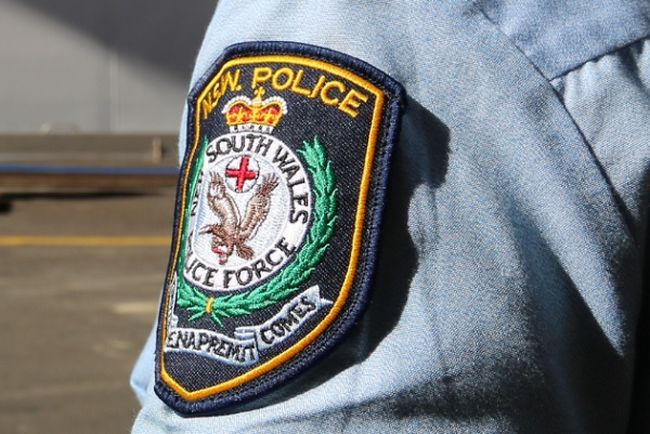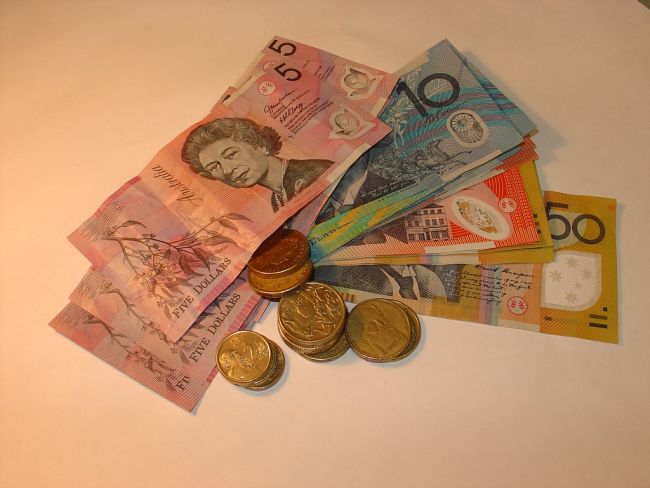Selected
- Details
- Written by Grant Broadcasters
- Category: Selected
- Hits: 277

A Sydney man has been charged over an attempt to import more than 900 kilograms of cocaine into Australia.
Mostafa Baluch was initially charged with a raft of offences in early June as part of ongoing investigations into an organised criminal syndicate involved in a plan to supply three tonnes of cocaine throughout NSW.
On Wednesday the 33-year-old was charged with an additional offence of conspiracy to import a commercial quantity of a border-controlled drug.
Baluch was arrested at his waterfront home in Bayview on Sydney's northern beaches on June 3 and charged with possessing anabolics, knowingly dealing with the proceeds of a crime and supplying a prohibited drug, NSW Police said in a statement on Wednesday.
Police said they seized $A62,700 and $US12,000, four mobile phones, two of which were encrypted, an ounce of cocaine, steroids and jewellery during the arrest.
Police said the operation began in early 2020 when police received a tip about someone gambling a "significant amount of money" at a Sydney casino.
During the investigation detectives uncovered a transnational organised crime syndicate across Australia and North and South America.
An international police operation began involving NSW Police, the NSW Crime Commission, the US Drug Enforcement Administration and the US Navy.
In October last year the US Navy intercepted a boat in the Pacific Ocean off the coast of Colombia and seized 870kg of cocaine. In April this year the US Coast Guard seized a further 900kg of cocaine, after intercepting a second vessel off Ecuador.
Police allege Baluch was the sole financier of the second shipment of cocaine, which has an estimated street value of $270 million.
He appeared in Central Local Court on Wednesday and was again refused bail.
Police allege both seizures formed part of a conspiracy to supply a total of 3000kg of cocaine which has a total estimated potential street value of $900 million.
© AAP 2021
Image Credit: NSW Police
- Details
- Written by Grant Broadcasters
- Category: Selected
- Hits: 291

Australia's lowest-paid workers will receive an $18.80 a week wage increase.
The Fair Work Commission revealed on Wednesday the national minimum wage will rise 2.5 per cent to $772.60 per week or $20.33 an hour.
Sectors still under pressure from coronavirus restrictions will have the increase delayed beyond July 1.
More than two million people are on award rates of minimum pay for their industry, while almost 200,000 receive the national base wage.
The Morrison government warned against a major increase, arguing it could dampen employment in small business during the coronavirus pandemic.
But unions pushed for a 3.5 per cent increase, which would have seen minimum wage workers receive an extra $26 a week.
The Australian Industry Group urged the commission to limit its increase to 1.1 per cent, or $8.29 a week.
The national minimum wage increased by 1.75 per cent to $753.80 a week, or $19.84 an hour, after last year's review but the rise was delayed at least three months for most workers.
© AAP 2021
Image Credit: https://www.flickr.com/photos/vagawi/1496156787 (free image)
- Details
- Written by Grant Broadcasters
- Category: Selected
- Hits: 252
A new locally transmitted COVID-19 case has been recorded in eastern Sydney, according to reports, as authorities desperately try to track down the source of the infection.
A person in the Bondi area has returned a positive test, media reports say, with the source of the infection unknown.
NSW Health is expected to issue a new COVID-19 alert shortly.
It comes as the department also investigates a potential hotel quarantine breach, after two cases in adjacent rooms returned identical viral sequencing results.
It's unclear how and where transmission occurred from a couple to another returned traveller who were all staying on the fourth floor of Sydney's Radisson Blu quarantine hotel.
Genomic sequencing has shown all three cases have identical viral sequences of the Alpha strain (B.1.1.7), NSW Health said.
"At this stage we still don't know if it happened on the plane, transporting from the plane to the accommodation, at the accommodation or whether it was just a coincidence," Premier Gladys Berejiklian told reporters on Wednesday.
The couple, who were asymptomatic, tested positive to COVID-19 on a routine day two test on June 3, NSW Health said in a statement.
The other returned traveller returned a negative day two test on June 3, before subsequently developing symptoms and testing positive for COVID-19 following a test on June 5.
The three cases were transferred from the Radisson Blu to the Special Health Accommodation, where they remain.
All three arrived in Sydney on the same flight from Doha on June 1 and stayed in adjacent rooms in the quarantine hotel.
NSW Health said there was no evidence of further transmission.
"Out of an abundance of caution, all returned travellers who were on the same floor of the Radisson Blu hotel between June 1 and June 5 and were subsequently discharged are being contacted and asked to get tested and isolate at home pending further advice from NSW Health."
All staff who worked on the fourth floor of the hotel between June 1 and June 5 have been asked to get tested and isolate pending further advice.
Meanwhile, NSW Health says it administered a record 17,223 COVID-19 vaccines in the 24 hours to 8pm on Tuesday, including 6048 at the vaccination centre at Sydney Olympic Park.
The total number of COVID-19 vaccines administered in NSW is now 1,737,557.
© AAP 2021
Image Credit: Nick Ang, CC BY-SA 4.0, via Wikimedia Commons
- Details
- Written by Grant Broadcasters
- Category: Selected
- Hits: 273
A French court has ordered IKEA to pay a one million euro ($A1.6 million) fine for spying on its French staff after the world's biggest furniture retailer was found guilty of improperly gathering and storing data on its employees.
The French branch of Ingka Group, which owns most IKEA stores worldwide, was accused of snooping on its workers and some clients over several years.
It was accused of breaching employees' privacy by reviewing records of their bank accounts and sometimes using fake employees to write up reports on staff.
The information was used to target union leaders or used to IKEA's advantage in disputes with customers after the firm trawled data on people's finances and even what cars they drove. It also paid for access to police files.
Prosecutors had pushed for a two million euro fine. Lawyers for France's CGT union and several individuals seeking compensation said the final amount was not hefty but welcomed the outcome.
The company said it was reviewing the court decision to see if further measures were needed to stamp out the surveillance tactics.
"IKEA Retail France has strongly condemned the practices, apologised and implemented a major action plan to prevent this from happening again," the Ingka group said.
The allegations centred on 2009-12, although prosecutors said the spying began in the early 2000s.
The firm's former chief executive in France, Jean-Louis Baillot, was found guilty and handed a two-year suspended prison sentence. He was also fined 50,000 euros for storing personal data.
Fifteen people were charged. Sanctions ranged from a 5000 euro fine to suspended sentences.
Two were found not guilty of all counts, including former IKEA France boss Stefan Vanoverbeke, who still has a senior position in the group's retail operations.
© RAW 2021
Image Credit: Kgbo, CC BY-SA 4.0, via Wikimedia Commons
Page 189 of 191

